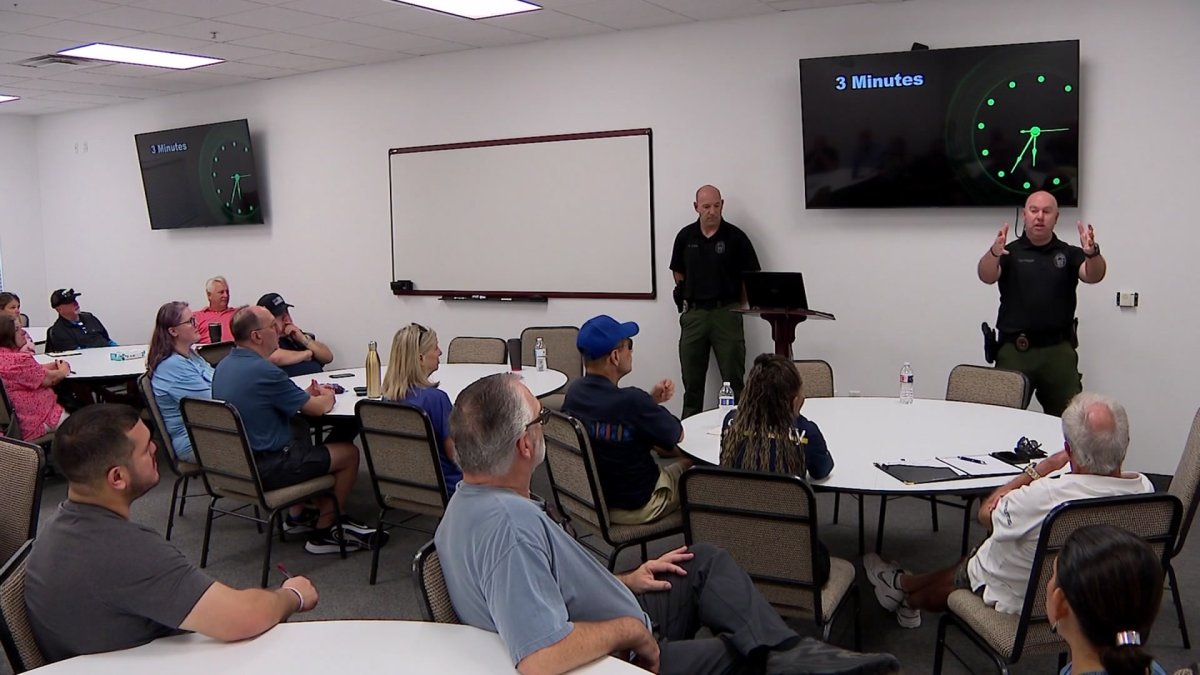The North Texas Crime Commission will host Civilian Response to Active Shooter Events (CRASE) training at 20 locations this Saturday, aiming to better prepare the public for life-or-death moments before police arrive.
“They are the three minutes that can make a life-or-death difference,” said Allen Police Chief Steve Dye, referring to the average time it takes officers to respond to active shooter incidents.
Dye cited the May 2023 shooting at Allen Premium Outlets as a moment where preparation paid off.
“That suspect had another 2,000 rounds of ammunition and three more weapons,” he said. “If not for that CRASE training that had been done in advance to that terrible mass shooting, we would have lost dozens, if not hundreds, of more people.”
Dye said store managers had received years of CRASE training— learning how to lock doors, hide shoppers and guide them to safety.
Now, ahead of the busy holiday season, North Texas law enforcement leaders want more civilians to be ready.
“As you see all of us working here together, we’re working as one to make sure that we keep everyone safe and we want to put that out to the community,” said Dallas Police Chief Daniel Comeaux.
“If we can just give the public that information, they need to survive, to avoid, to deny and to defend themselves. We’re coming, we’re going to be there, but in that crucial time, they need to have something that fall back on,” said Irving Police Chief Derick Miller.
According to the FBI, the majority of active shooter attacks happen in open spaces such as parking lots, sidewalks and outdoor venues.
“Fifty percent of these events occur in open settings— shopping malls, football games, you name it,” said Jeremy Sherrod, regional director with the Texas Department of Public Safety.
The CRASE training sessions will take place on Saturday, Nov. 22, from 8 a.m. to noon at 20 sites across North Texas. The training is free, and no registration is required.
“This training isn’t about training our citizens how to be SWAT cops,” said Grand Prairie Police Chief Daniel Scesney. “This is about telling them what to do in that finite amount of time between the threat and when the officers get there.”
James Keith with ALERRT, a national active shooter response program, said many people freeze during emergencies because their first reaction is disbelief.
“A lot of people are prone to freeze because the first part of disaster psychology response is denial. We’re caught in denial of ‘this can’t happen, it can’t happen to me, it can’t happen here,’” Keith said.
Law enforcement leaders across the region say the training gives people the tools they need to take control before officers arrive on the scene.
The Civilian Response to Active Shooter Events training will be held Saturday, Nov. 22, from 8 a.m. to noon. It is free and open to the public.
Here’s a list of training locations:
